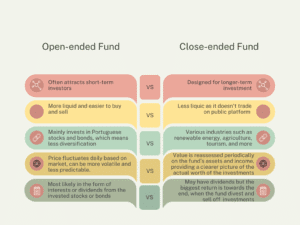Portugal’s healthcare system is widely recognized for its quality and accessibility, making it an attractive option for expats seeking a safe and healthy lifestyle. Whether you’re wondering if Portugal has free healthcare or looking for details on the Portugal healthcare system for expats, this guide answers all your questions. In this comprehensive guide, covering public and private healthcare options, costs, and how to access medical benefits as of 2025, it’s the ultimate resource that highlights essential aspects expats should consider. Hopefully, it will help you navigate the healthcare landscape in Portugal.
1. Does Portugal Have Good Healthcare?
Overview of Portugal’s Healthcare Rankings
Portugal is consistently ranked as one of the top countries for healthcare. According to the World Health Organization’s (WHO) 2000 World Health Report, the Portugal healthcare system ranked 12th globally. While this ranking is dated, it reflects the country’s strong commitment to quality healthcare. Expats benefit from a system that provides reliable, comprehensive, and accessible medical services.
Quality of Healthcare in Portugal for Expats
Portugal’s healthcare system ensures that expats and residents alike receive high-quality care. WHO data shows that by 2025, over 600,000 more people will have access to essential healthcare services compared to 2018. Additionally, the country has increased its healthcare workforce since 2012, improving overall service availability. With an average life expectancy of 81.58 years (2022), Portugal surpasses the EU average, underscoring the effectiveness of its healthcare system.
2. Portugal Healthcare System: How It Works
Portugal operates a dual healthcare system comprised of public and private sectors to meet diverse health needs. The Serviço Nacional de Saúde (SNS) serves as the cornerstone of public healthcare, providing basic and comprehensive health insurance to residents. Meanwhile, the private sector supplements the public system with more flexible and personalized services.
3. Overview of Public Healthcare (Serviço Nacional de Saúde – SNS)
The SNS is Portugal’s public healthcare system, funded by taxes and based on the principle of universal healthcare. It provides affordable or free medical services to legal residents, ensuring equitable access across the country.
How SNS Works
The SNS operates through a nationwide network of health centers and hospitals, featuring:
- Family Doctor System: Residents register with a family doctor at their local health center, who provides general care and manages referrals to specialists.
- Centralized Resource Allocation: Ensures that residents in all regions have access to essential medical services.
SNS Coverage and Services
The SNS offers a broad range of medical services, including:
- Basic Care: General practitioner consultations, health check-ups, and preventive care.
- Specialist Services: Requires referral from family doctors, covering specialties like cardiology and neurology.
- Hospitalization and Surgery: Covers inpatient care for acute and chronic conditions, as well as necessary surgical procedures.
- Maternity and Childcare: Comprehensive services from prenatal care to childbirth, along with pediatric check-ups.
- Emergency Services: Includes ambulance support and treatment in emergency rooms.
4. Overview of Private Healthcare in Portugal
The private healthcare sector complements the public system by offering faster, more personalized care. Private hospitals and clinics are renowned for their advanced facilities and shorter waiting times, making them a popular choice for expats.
Private Healthcare Services and Facilities
Private healthcare facilities in Portugal are known for their excellence, providing:
- Advanced Diagnostics: Access to state-of-the-art medical imaging (CT, MRI) and laboratory tests.
- Specialized Treatments: High-end medical procedures, from cardiac surgery to cosmetic treatments.
- Comfort and Privacy: Private rooms and inpatient facilities prioritizing patient comfort and privacy.
Advantages of Private Healthcare
- Reduced Wait Times: Private healthcare significantly minimizes waiting periods, especially for specialist consultations.
- Flexibility: Patients have the freedom to choose their doctor or medical institution, ensuring personalized care.
- High-Quality Infrastructure: Equipped with the latest technology and designed for patient comfort.
In summary, Portugal’s dual healthcare system ensures comprehensive public coverage while offering high-end private options to meet diverse resident and expat needs.
5. Does Portugal Have Free Healthcare?
Portugal’s healthcare system is not entirely free. However, it is designed to cater to different walks of life by balancing affordable public healthcare with flexible private healthcare options. Below is a comparison of the costs associated with public and private healthcare.
Public Healthcare Costs
Public Healthcare is heavily subsidized by taxes. Expats with legal residency can access the SNS, paying minimal fees for general and specialist care. Some groups (e.g., low-income families, pregnant women, children, and the elderly) can access services for free. General consultations at SNS health centers cost around €5, emergency services cost approximately €20, and specialist care or hospitalization typically requires a referral. Prescription medications are partially subsidized, with patients paying 10%-85% of the cost depending on the medication’s importance.
Private Healthcare Costs
Private healthcare is more expensive but offers faster and more flexible services. General consultations or specialist visits typically cost €50-€150, while hospitalization or surgeries can run into thousands of euros, depending on the complexity and provider. Many opt for private health insurance to manage these costs, with premiums averaging €30-€100 per month, depending on age, health status, and coverage.
6. Who Can Access Portugal’s Public Healthcare?
Access to Portugal’s public healthcare primarily depends on residency status. Legal residents, including expats with valid visas or residence permits, are entitled to public healthcare services. However, recent legislation limits free access for undocumented immigrants and non-resident foreigners to emergency care only.
7. How Expats Can Ensure Healthcare Coverage Before Moving to Portugal?
Before moving to Portugal, expats should ensure they have healthcare coverage by:
- Understanding Eligibility: Confirming they hold the necessary legal residency status to access the public healthcare system (SNS).
- Considering Health Insurance: Evaluating whether private health insurance is needed to supplement public services or access private facilities.
- Preparing for Language Barriers: Being aware that language barriers may impact the healthcare experience, especially in rural areas with limited English speakers.
SNS Registration Process for Expats
Expats with legal residency must register with the SNS to access public healthcare. The steps include:
- Obtain a Healthcare Number (Número de Utente de Saúde): This unique medical ID is issued by the SNS.
- Prepare Necessary Documents: These include:
- Residence Permit: Proof of legal residency in Portugal.
- Social Security Number (NISS): Required if working or contributing to social security.
- Proof of Address: Such as a rental agreement or utility bill.
- Visit the Local Health Center (Centro de Saúde): Submit the documents and complete the registration process with staff assistance.
Once registered, expats can access all public healthcare services, including primary care, specialist referrals, and emergency services.
8. Additional Healthcare Services in Portugal
- Children’s Healthcare: Comprehensive pediatric care, including routine check-ups, vaccinations, and specialist treatment.
- Women’s Health Services: Gynecological care, maternity services, and reproductive health available through SNS and private providers.
- Mental Health Services: Includes psychiatric care, psychological support, and a network of resources through public and private options.
- Emergency and Urgent Care: In emergencies, dial 112 for nationwide medical assistance, ensuring prompt access to care.
At The Golden Portugal, we specialize in helping people relocate to Portugal through investment and immigration programs. For more in-depth details, explore our guides on the Portugal Golden Visa and D7 & D8 Visa options or feel free to book your free 30-minute consultation call here.
References
- World Health Organization (WHO): Portugal Health Data Overview. Accessed April 10, 2025. https://data.who.int/countries/620
- World Bank Group: World Development Indicators. Accessed April 10, 2025. https://datatopics.worldbank.org/world-development-indicators/


























